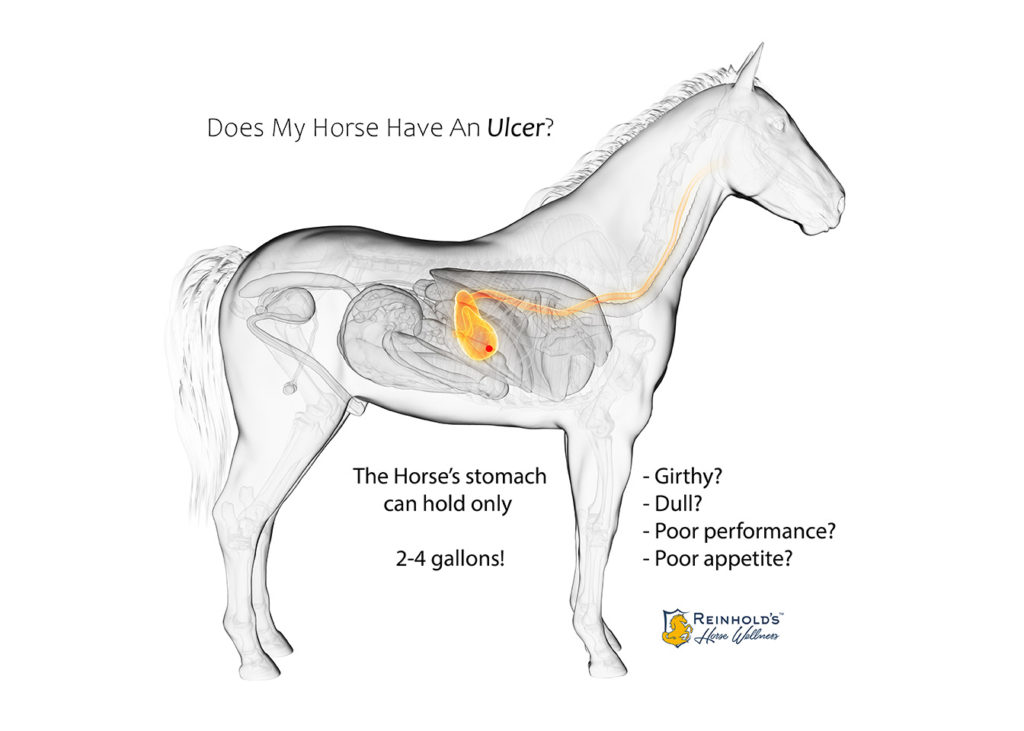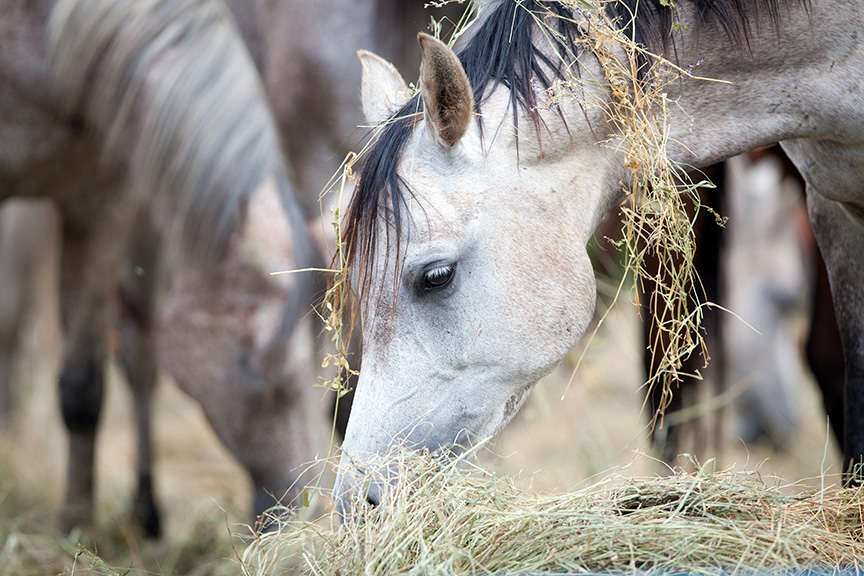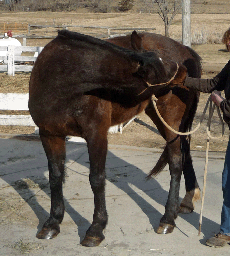What You Need To Know About Equine Ulcers
Does my horse have an ulcer?
According to estimates, 90% of race horses and 60% of show horses as well as a large number of the general horse population suffer from ulcers*, also called “equine gastric ulcer disease” (EGUD). Your vet is able to diagnose whether your horse suffers from EGUD. Here some general information on the topic:
The horse’s stomach
In comparison to our human stomach, the horse’s stomach is rather small and can only hold about 2-4 gallons**. Moreover, the human stomach only produces stomach acid when we start eating. In contrast, the horse’s stomach constantly produces stomach acid, because in nature, the horse constantly eats. This means: If a horse does not eat, the stomach acid accumulates in the stomach and can irritate the tissues of the stomach lining.

Causes of equine gastric ulcers
- Infrequent meals – Horses are grazing animals designed to eat small meals frequently. If meals are infrequent, stomach acid builds up and this sets the stage for ulcers.
- Feed types – Roughage is the most important element in a horse’s diet***. It requires more chewing, which stimulates the production of saliva. Saliva neutralizes stomach acid. Feeding concentrated feeds increases the production of stomach acid. Also look for a connection in changes of the amount of exercise/amount of feed.
- Stress – Stress can decrease the amount of blood flow to the stomach by increasing Cortisol levels.**** This makes the lining of the stomach more vulnerable to injury from stomach acid. (Stress can be anything from an incompatible pasture mate to higher performance demands or travel.)
- Medications – Ask your vet how frequent use of anti-inflammatory drugs like Bute or Banamine can contribute to the development of ulcers.

Signs of possible ulcers in horses (adult horses)
- “Girthiness” or not wanting to be groomed around girth area or stomach
- Poor appetite, weight loss and poor body condition
- Poor hair coat
- Mild colic or lying down more than normal
- Mental dullness or attitude changes
- Poor performance
What can I do if I observe possible symptoms of Equine Gastric Ulcer Disease?
Contact your vet if you suspect that your horse may have gastric ulcers. Here some immediate risk-free steps to try:
- Remove any suspected ‘stress factors’ from your horse’s life
- Reduce grains in the diet (involve an equine nutritionist, for example with Buckeye Nutrition)
- Increase the forage/roughage in your horse’s diet
- Ensure frequent meals
- Feed probiotics
- After making above changes, feed a gastric support supplement after checking with your vet on recommendations.
Sources:
- Information on Gastric Ulcers in horses by AAEP
- The gastric anatomy of the horse by Iowa State University
- Fiber as the basis for horse feed by Kentucky Equine Research
- Information on Equine Gastric Ulcer Syndrome or EGUS by Total Equine Vets
Please note: I may make a small commission on any of the listed products. I am not licensed to diagnose or treat illness.


